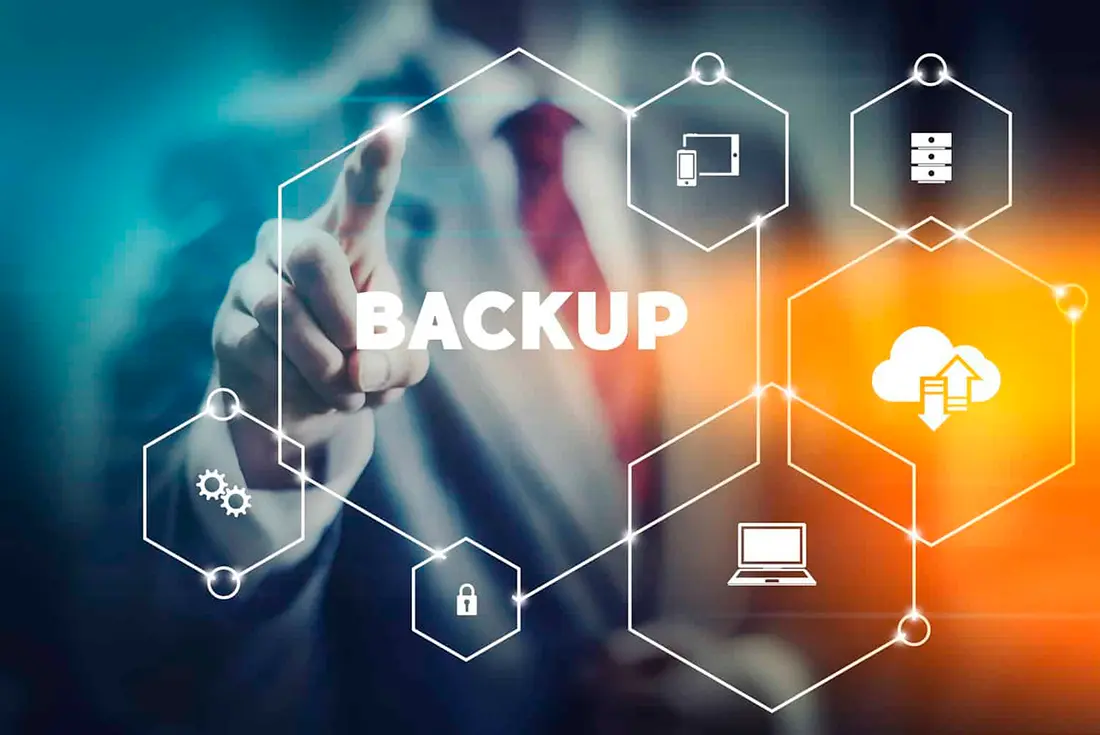
31 May Data Backup and Disaster Recovery: Why It’s Essential for Every Business
Your business data is constantly vulnerable in the heart of South Florida, where hurricanes rage and cyber threats lurk. Whether it’s a natural disaster wiping out your servers or a ransomware attack encrypting your files, the consequences of data loss can be catastrophic. Imagine losing years of customer records, financial data, and operational information in an instant. The costs associated with recovering from such an event can cripple even the most well-established businesses.
But it doesn’t have to be this way. With a robust data backup and disaster recovery (DR) plan in place, you can safeguard your business against the unexpected and ensure its continuity even in the face of adversity. In this article, we’ll delve into why data backup and DR are essential for South Florida businesses, explore the role of cloud services in protecting your data, and provide guidance on creating a comprehensive plan to keep your business running smoothly, no matter what challenges come your way.
Natural Disasters: Protecting Your Data from Hurricanes and Flooding
South Florida is no stranger to the destructive power of hurricanes and floods. In 2017, Hurricane Irma caused an estimated $50 billion in damages across the state, leaving many businesses struggling to recover from flooded offices, damaged equipment, and lost data. More recently in 2022, Hurricane Ian caused widespread power outages and flooding, further emphasizing the vulnerability of businesses in the region.
These natural disasters can damage or destroy physical infrastructure, including servers, computers, and storage devices, leading to irreversible data loss. Imagine a medical practice losing years of patient records, a law firm losing case files, or a retailer losing inventory data – the consequences could be catastrophic.
This is where data backup comes in. Regularly backing up your data to an off-site location, preferably in the cloud, creates a secure copy that remains accessible even if your local systems are damaged or destroyed. Cloud backup services like Backblaze, Carbonite, or IDrive offer reliable and cost-effective solutions for storing your data off-site, ensuring its safety in the face of natural disasters. These services provide geographically distributed data centers, ensuring redundancy and minimizing the risk of data loss due to a localized event.
By having a secure off-site backup, you can rest assured that even if your physical premises are affected by a hurricane or flood, your data will remain intact and accessible, allowing you to resume operations quickly and minimize downtime.
Cyber Threats: Safeguarding Your Business from Hackers and Ransomware Attacks
While natural disasters pose a significant risk, the threat of cyberattacks is equally concerning. Hackers and cybercriminals are constantly evolving their tactics, and businesses of all sizes are vulnerable. Ransomware attacks, where hackers encrypt your data and demand payment for its release, are becoming increasingly common and can cripple a business if it’s unprepared.
Cloud services can play a vital role in protecting your business from cyber threats. By storing your data in the cloud, you create an off-site copy that’s less vulnerable to physical damage or theft. Сloud providers also offer advanced security features like encryption, multi-factor authentication, and regular security updates to safeguard your data from unauthorized access.
However, it’s also important to implement other cybersecurity measures, such as firewalls, intrusion detection systems, and employee training on recognizing and avoiding phishing scams. A proactive approach to cybersecurity is essential for mitigating the risk of data breaches and ransomware attacks.
Cloud Services: The Future of Data Backup and Disaster Recovery
Cloud services have emerged as game-changers in data backup and disaster recovery. Essentially, cloud services involve storing and accessing data and programs over the Internet instead of your computer’s hard drive. This offers several advantages over traditional on-premises backup methods.
- Cloud storage can easily scale up or down to meet your business’s changing needs. You only pay for the storage you use, making it a cost-effective option.
- Cloud-based backups can be accessed from anywhere with an internet connection, allowing you to restore your data quickly and easily in the event of a disaster.
- Reputable cloud providers invest heavily in security measures like encryption, access controls, and regular backups to protect your data from unauthorized access or loss.
- Cloud services are often updated automatically, ensuring you always have the latest features and security patches.
There are various types of cloud backup solutions available, including public, private, and hybrid cloud. Public clouds are shared resources offered by third-party providers, while private clouds are dedicated environments managed by your organization. Hybrid clouds combine the best of both worlds, offering flexibility and customization.
If you are considering cloud services for backup, contact Downtown Computer Services. Our team will work with you to design a customized backup strategy that aligns with your specific needs and budget. Don’t leave your data vulnerable to loss or corruption. Contact us today at (954) 524 9002 to schedule a consultation and ensure the protection of your valuable business information.
Creating a Comprehensive Data Backup and Disaster Recovery Plan
Having a comprehensive data backup and disaster recovery plan is essential for ensuring the resilience and continuity of your business in South Florida. This plan should outline your backup strategy, recovery procedures, and communication protocols in the event of a data loss incident.
Let’s look at the key components of an effective plan.
Regular Backups
Establish a schedule for frequent backups of your critical data, including customer information, financial records, operational documents, and any proprietary information. The frequency of backups should depend on how often your data changes. For businesses with highly dynamic data, daily or even hourly backups might be necessary. Consider using automated backup solutions to ensure consistency and minimize the risk of human error.
Testing and Verification
It’s not enough to simply create backups; you need to ensure they are functional and reliable. Regularly test your backups by restoring sample data to verify that it can be recovered successfully. This will help you identify any potential issues with your backup system or procedures before a disaster strikes. Schedule periodic reviews and updates of your DR plan to account for changes in your IT infrastructure or business operations.
Recovery Procedures
Document detailed step-by-step procedures for restoring data from backups and resuming operations in the event of a disaster. This should include instructions on how to access backups, restore data to alternate systems, and communicate with stakeholders about the situation. Ensure that multiple employees are familiar with these procedures to avoid bottlenecks or delays in recovery.
Communication Plan
Develop a clear communication plan to keep employees, customers, and stakeholders informed during and after a disaster. This plan should outline who will communicate what information, through which channels (e.g., email, phone, social media), and how often. Effective communication can help mitigate the impact of a disaster and maintain trust with your stakeholders.
Off-Site Storage
Store backups in a geographically separate location from your primary data center or office. This ensures that your backups remain accessible even if your local systems are affected by a disaster. Cloud-based storage is an excellent option for off-site backups, as it offers scalability, security, and ease of access from anywhere with an internet connection.
Selecting the right backup and DR solutions is critical. Consider factors like your budget, data storage needs, recovery time objectives (RTO), and recovery point objectives (RPO). It’s also important to train your employees on the importance of data backup and DR procedures, as their awareness and cooperation are crucial for the successful implementation of the plan.
Conclusion
The unpredictable nature of events in South Florida, from hurricanes to cyberattacks, underscores the critical importance of proactive data protection measures. A well-crafted data backup and disaster recovery plan is not a luxury, but an essential safeguard for any business that values its continuity and reputation.
By embracing cloud services and implementing a comprehensive strategy, you can mitigate the risks associated with data loss and ensure that your business can swiftly recover and resume operations, even in the face of adversity. The investment you make today in data backup and disaster recovery will pay dividends in the future, protecting your valuable assets and securing the long-term success of your business.
If you’re unsure where to start or need expert assistance, Downtown Computer Services can help. We specialize in developing and implementing customized data backup and disaster recovery plans tailored to the unique needs of South Florida businesses. Our team of experienced IT professionals can assess your current infrastructure, identify vulnerabilities, and implement robust solutions to protect your critical data. Contact us today to learn more about how we can help you safeguard your business and ensure its continuity, no matter what challenges the future holds. Dial: (954) 524 9002.
Key Takeaways
- Data loss can have devastating financial and operational consequences for businesses, especially in South Florida due to natural disasters and cyber threats.
- Cloud backup services offer a reliable and cost-effective solution for storing data off-site, protecting it from physical damage and cyberattacks.
- A comprehensive data backup and disaster recovery plan, including regular backups, testing, recovery procedures, and off-site storage, is essential for ensuring business continuity in the face of unexpected events.
Check out other relevant news
- How Easy-to-Use Hacking Tools Are Fueling Cybercrime
- Cryptocurrency Security for Small Businesses: Protecting Your Wallet
- The Infostealer Epidemic: Protecting Your Business from the Latest Wave of Cyberattacks
- The Identity Crisis: How Compromised Credentials Can Cripple Your Business
- Beyond the Brick and Mortar: Building Your Online Storefront with Digital Marketing
